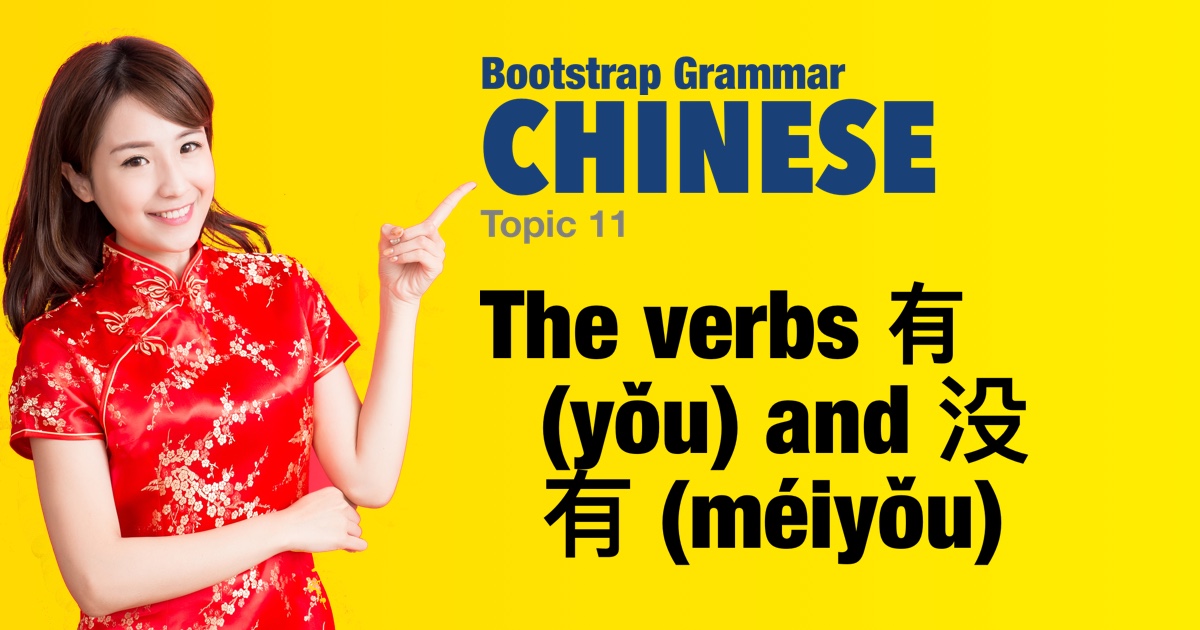Chinese grammar - The verbs 有 (yǒu) and 没有 (méiyǒu) |
|||
|
|||
The Chinese verb 有 (yǒu) has two primary uses: • 有 is used with a subject to indicate 'possession' - as in 'to have'. • 有 is used without a subject to indicate 'existence' or 'absence' - as in 'there is...'. When negated 有 takes the negative particle 没 (méi). Recall that other verbs are negated using 不 (bù). Additionally 有没有 (yǒu méi yǒu) is a very common way to ask about possession or existence, without requiring the question marker 吗 (ma). |
| Examples: | |
|
我有一本书。
wǒ yǒu yì běn shū. I have a/one book.
|
|
|
我没有一本书。
wǒ méi yǒu yì běn shū. I do not have a/one book. |
|
|
他有两个苹果。
tā yǒu liǎng gè píngguǒ. He has two apples. |
|
|
他没有两个苹果。
tā méi yǒu liǎng gè píngguǒ. He does not have two apples. |
|
|
有四张桌子吗?
yǒu sì zhāng zhuōzi ma? Are there four tables?
|
|
|
有四张桌子。
yǒu sì zhāng zhuōzi. There are four tables.
|
|
|
没有四张桌子。
méi yǒu sì zhāng zhuōzi. There are not four tables.
|
|
|
没有问题。
méi yǒu wèntí. There is no question. |
|
|
你有问题吗?
nǐ yǒu wèntí ma? Do you have [a] question?
|
|
|
我没有问题。
wǒ méi yǒu wèntí. I don't have [a] question.
|
|
|
你有没有柠檬?
nǐ yǒu méi yǒu níngméng? Do you have (or don't have) a/any lemon(s)?
|
|
|
你有没有问题?
nǐ yǒu méi yǒu wèntí? Do you have (or don't have) [a] question? |
|
|
有没有两张桌子?
yǒu méi yǒu liǎng zhāng zhuōzi? Are there (or not) two tables? |
|
 |
|




